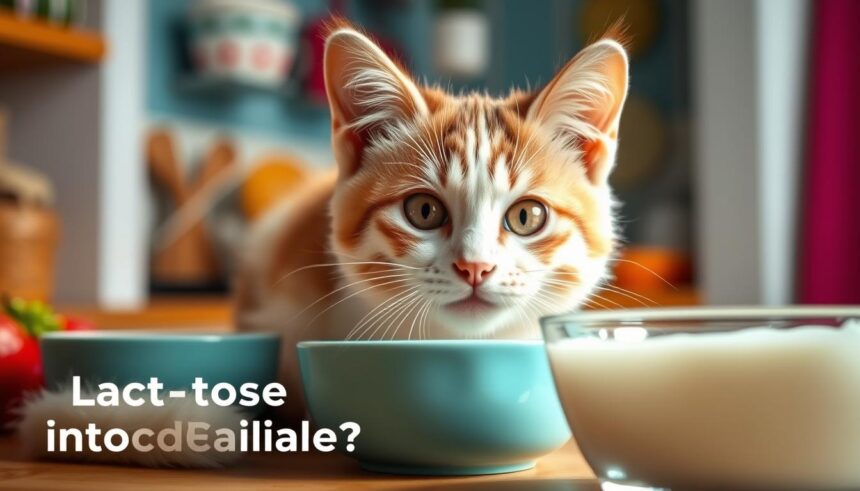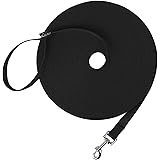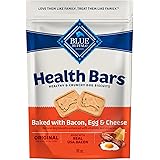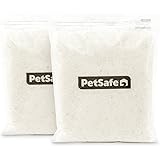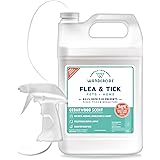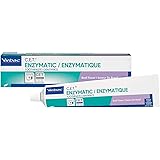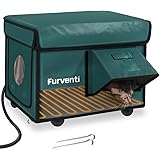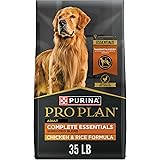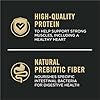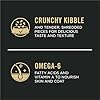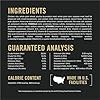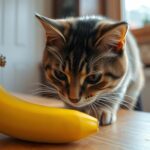Many cat owners wonder if their feline friends can drink milk. They think cats and milk are a perfect pair. But, most cats can’t digest lactose, a key part of milk, as they get older. This makes them lactose intolerant.
It’s important to know about cats and milk to care for them well. Cats naturally drink their mother’s milk. But, they can’t process lactose as they grow. This is why many cats don’t do well with cow’s milk or other dairy products.
Exploring cats and milk is key. While some cats might seem to like milk, the risks of lactose intolerance are big. In this article, we’ll look into cats and milk, including lactose intolerance and better milk alternatives.
Key Takeaways
- Cats develop lactose intolerance as they mature, making it difficult for them to digest lactose.
- Most adult cats are lactose intolerant, lacking the enzyme lactase needed to digest lactose.
- Cow’s milk and other plant-based milks can cause gastrointestinal upset in cats due to high fat, sugar, and additive content.
- Special cat milk is available, but it should be given in small amounts due to high-fat content.
- Water is crucial for a cat’s health, and hydration methods like wet food should be included in their diet.
- Consuming milk can lead to symptoms like diarrhea and vomiting in lactose-intolerant cats.
The Myth of Cats and Milk
Cats and milk have been linked for ages, but most cats can’t handle milk well. They lack the enzyme lactase, which breaks down lactose in milk. This can cause stomach problems like diarrhea and vomiting in cats.
Many think cats can drink milk because of movies and TV. But this is just a myth. Cats are meat-eaters and don’t need milk. Giving them dairy can harm their health, especially if they can’t digest it.
- Cats are often lactose intolerant, leading to issues such as diarrhea after consuming milk.
- Kittens younger than 8 weeks possess the lactase enzyme, but this does not extend to cow’s milk.
- Milk from modern grocery stores has a lower fat content compared to fresh milk from farms, resulting in higher lactose levels that can upset a cat’s stomach.
In conclusion, cats drinking milk is not good for them. They should drink water or eat wet cat food instead. Avoiding dairy products keeps them healthy and prevents stomach problems.
| Age of Cat | Lactase Enzyme Production | Dairy Tolerance |
|---|---|---|
| Kittens (0-8 weeks) | High | Tolerant to mother’s milk |
| Adult Cats | Low | Lactose intolerant |
Understanding Lactose Intolerance in Cats
Cats are often seen with milk, but most can’t digest it well. This is because they lack the enzyme lactase. So, giving them dairy can cause them discomfort.
Signs of lactose intolerance in cats include diarrhea, vomiting, and an upset stomach. These issues can start within 8 to 12 hours after they drink milk. If you’re thinking of giving your cat milk, look for lactose-free or low-lactose options.
What is Lactose Intolerance?
Lactose intolerance in cats happens when they can’t make enough lactase. Kittens can digest lactose, but this skill fades after they stop nursing. So, most adult cats can’t handle lactose, leading to stomach problems.
Symptoms of Lactose Intolerance in Cats
The signs of lactose intolerance in cats vary. But common ones are:
- Diarrhea
- Vomiting
- Upset tummy
These symptoms can make your cat feel really bad. If you think your cat is lactose intolerant, it’s important to talk to a vet.
Nutritional Aspects of Milk for Cats
When thinking about feline nutrition milk consumption, it’s key to know what’s in milk for cats. Milk has nutrients like protein, calcium, and vitamins that are good for kittens. But, most adult cats can’t digest milk well because they’re lactose intolerant.
Some dairy products for cats have too many calories or sweeteners that can upset their stomachs. Milk alternatives for cats, like lactose-free or plant-based milks, might be better. For instance, cats can have a little almond milk, but too much can cause stomach issues.
A healthy cat diet can include cooked meat or fish for protein. Cat foods made for different life stages can give them everything they need. It’s crucial to remember that kittens should never have cow’s milk because it can cause malnutrition and dehydration.
For more details on healthy kitten food, talk to a vet. They can give advice on the best diet for your cat, based on their age, health, and needs.
| Nutrient | Importance for Cats |
|---|---|
| Protein | Essential for growth and maintenance |
| Calcium | Crucial for bone development |
| Vitamins | Important for overall health and well-being |
Alternatives to Milk for Cats
When looking at milk alternatives for cats, it’s key to know cats have special dietary needs. About 65% of humans can’t digest lactose, and cats are mostly lactose intolerant too. This intolerance can cause stomach problems, so finding good alternatives is important.
Some cat owners might ask is milk safe for cats. Generally, no, because of lactose intolerance. But, there are best drinks for cats that give important nutrients without lactose risks. Cat-safe dairy products like CatSip and CatSure have less lactose. Also, plant-based milks like almond, coconut, and oat milk are lactose-free and safe.
When picking milk alternatives for cats, think about the nutrients and health benefits. Coconut milk is fatty, but almond milk is low in calories and full of omega-3s. Choosing the right milk alternatives for cats helps keep them healthy and hydrated.
Risks of Feeding Milk to Adult Cats
Feeding milk to adult cats can cause health problems. Many cats can’t digest lactose in milk because they lack the lactase enzyme. This can upset their stomachs, cause cramps, gas, and severe diarrhea.
Some risks of giving milk to adult cats include:
- Gastrointestinal issues, such as diarrhea and vomiting
- Long-term health concerns, such as obesity and digestive problems
- Dehydration, which can be life-threatening if left untreated
Water is the best drink for cats. Milk’s high fat content can make cats uncomfortable. It’s wise to talk to a vet before giving milk alternatives to cats.
About 90% of adult cats can’t digest milk well. Kittens can, but they lose this ability after weaning. It’s important to give cats a balanced diet, not just milk.
| Drink | Lactose Content | Calories per Cup |
|---|---|---|
| Cow’s Milk | 4.7% | 146 |
| Goat’s Milk | 4.1% | 140 |
| Lactose-Free Milk | 0.1% | 130 |
| Almond Milk | 0% | 35-60 |
In conclusion, it’s crucial to know the risks of milk for adult cats. Providing a balanced diet is key to their health. Always consult a vet to ensure milk is safe for your cat.
Understanding a Cat’s Digestive System
Cats have a special digestive system made for eating lots of protein and fat. When it comes to feline nutrition milk consumption, it’s key to know how cats digest food and the role of enzymes. About 90% of adult cats are lactose intolerant, which means they might get sick if they drink milk.
Cats are built to eat meat, with a short digestive tract and very acidic stomach. This makes it hard for them to digest lactose, a sugar in milk. Cats and milk is a big topic, but most adult cats can’t handle lactose. Signs of lactose intolerance in cats include diarrhea, vomiting, and stomach pain, which can start a few hours after drinking milk.
To get a better grasp of a cat’s digestive system, here are some important points:
* Cats need a diet rich in protein (about 40-50%) and low in carbs.
* Most adult cats can’t digest lactose because they lack the lactase enzyme.
* Feline nutrition milk consumption should be done carefully, as it can upset their stomach.
* Cats need clean water to stay hydrated, and it won’t harm their diet.
| Food Type | Suitability for Cats |
|---|---|
| Cow Milk | Not suitable due to high lactose and fat content |
| Goat Milk | Not recommended due to calorie content |
| Plant-Based Milk | Not beneficial and may cause negative effects |
| Lactose-Free Milk | A safer alternative, but high in fat |
Signs Your Cat May Have a Milk Allergy
Cats drinking milk myths can confuse us about what’s best for them. It’s key to know the signs of a milk allergy in cats. Look out for chronic itching, skin inflammation, or stomach problems like vomiting or diarrhea. These could mean your cat has a milk allergy.
Research shows food allergies in cats can start at any time after three months. Common culprits include beef, fish, chicken, and dairy. Cats can react strongly to small amounts of allergens. So, it’s important to spot and fix the problem quickly. For more on what cats should avoid, check out this resource.
Common symptoms to look for include:
- Chronic itching and skin inflammation
- Gastrointestinal issues like vomiting or diarrhea
- Scooting or excessive licking
If you think your cat has a milk allergy, see a vet right away. They might suggest an elimination diet trial lasting at least eight weeks. This can help figure out the allergy’s cause.
When it comes to feline nutrition, milk can be bad for cats. It’s important to find safe alternatives. Knowing the signs of a milk allergy and acting fast can keep your cat healthy and happy.
Age and Diet Variety in Cats
Cats grow from kittens to adults, and their diet changes a lot. Kittens need lots of nutrients for fast growth. Adult cats need a balanced diet to stay healthy. Feline nutrition is key to their health. Cats’ needs for milk consumption change with age.
It’s important to know about lactose intolerance in cats. Kittens can digest their mother’s milk at birth. But, as they grow, they lose this ability. By six months, most kittens can’t digest milk anymore. This is why many adult cats can’t handle cow’s milk well.
Here are some tips for adding new foods to your cat’s diet:
- Start with small amounts to prevent digestive upset
- Choose foods that are nutritionally balanced and complete
- Avoid foods that are high in lactose or other common allergens
- Monitor your cat’s reaction to new foods and adjust their diet accordingly
Every cat is unique, and their diet needs can vary. Talk to your vet to find the best diet for your cat. A balanced diet helps your cat stay happy and healthy.
| Age | Dietary Needs |
|---|---|
| Kittens (0-6 months) | Milk replacer or kitten food |
| Adult cats | Balanced and complete cat food |
Common Misconceptions About Cat Drinks
Many people think cats need milk to stay hydrated. But, this is not true. Cats drinking milk myths have been proven wrong. Water is the best drink for cats.
The best drinks for cats are low in lactose and full of nutrients. But, most adult cats can’t digest dairy well. So, it’s better to give them fresh, clean water always.
Water: The Best Hydration Option
Several things affect how much water a cat drinks. These include their age, size, and diet. It’s smart to put water bowls all over the house to help them stay hydrated.
Other Common Drinks to Avoid
There are other drinks that are bad for cats too. Drinks with sugar or too much fat can cause stomach problems and other health issues.
- Plain chicken or fish broth (without salts or oils) can be a good alternative to encourage water intake.
- Pet drinking fountains can also be an effective way to encourage cats to drink more water.
How to Safely Introduce Treats to Your Cat
When it comes to feline nutrition and milk consumption, it’s key to think about lactose intolerance in cats. As a cat owner, you want to meet your cat’s dietary needs without digestive issues. Adding new treats can be tricky, but it’s vital to do it right to avoid problems.
To add new treats, start by mixing them into your cat’s meals slowly. Begin by replacing a small part of their regular food with the new treat. Watch how they react. Choose treats that are low in calories and lactose, like hard cheeses or yogurt, to lower digestive risks. For more info on switching your kitten to cat food, visit catsjoys.com.
Some important things to consider when introducing new treats include:
- Start with small amounts to test your cat’s tolerance
- Choose treats that are low in lactose and calories
- Monitor your cat’s reaction and adjust their diet accordingly
By following these tips and watching your cat’s needs, you can safely introduce new treats. Always put your cat’s health first and talk to a vet if you have diet or digestive concerns.
Recommendations from Veterinarians
Many cats can’t digest milk well because they are lactose intolerant. Veterinarians often advise against giving cats dairy products. This is because they can upset a cat’s stomach and cause health problems. The American Animal Hospital Association says cats need a diet rich in water, protein, and vitamins from meat.
If you still want to give your cat milk, choose lactose-free options. But remember, treats like milk should be given in small amounts. Too many calories can lead to obesity, which is dangerous for cats. Alternative treats, like small bits of tuna, are better for their diet.
Here are some key recommendations from veterinarians:
- Avoid giving milk to adult cats to prevent malnutrition and bad dietary habits.
- Choose cat food products with the Association of American Feed Control Officials (AAFCO) seal to ensure quality.
- Consider lactose-free cat milk as a safer alternative for cats that enjoy milk.
Vets say cats need a diet that’s different from ours. By avoiding dairy and following these tips, you can keep your cat healthy and happy.
| Age | Dietary Needs |
|---|---|
| Kittens | Rich in essential nutrients and antibodies necessary for early development |
| Adult Cats | Balanced diet that includes water, protein, fatty acids, vitamins, and minerals from high-quality meat-based sources |
Conclusion: The Bottom Line on Cats and Milk
The idea that cats can freely drink milk is a myth. Most adult cats are lactose intolerant. This means milk can cause serious digestive problems.
Kittens can drink their mother’s milk because they have the enzyme to break down lactose. But as they grow older, they lose this ability. This makes milk harmful for them.
Feeding cats milk can lead to stomach issues, obesity, and other health problems. Instead, safer options like catnip tea or bone broth are better. Always talk to a vet before changing your cat’s diet.


